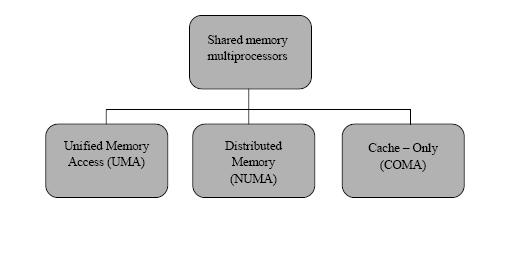CSC/ECE 506 Spring 2010/ch 6 PP: Difference between revisions
No edit summary |
No edit summary |
||
| Line 1: | Line 1: | ||
CACHE STRUCTURES OF MULTI-CORE ARCHITECTURES | |||
'''Overview''' | |||
With the advent of multicore and many core architectures, we are facing a problem that is relatively new to parallel computing, namely, the management of hierarchical parallel caches. This chapter describes some of the mainstream memory organizations in multiprocessor architectures. It also focuses on cache coherence and memory consistency issues and protocols to handle them. | With the advent of multicore and many core architectures, we are facing a problem that is relatively new to parallel computing, namely, the management of hierarchical parallel caches. This chapter describes some of the mainstream memory organizations in multiprocessor architectures. It also focuses on cache coherence and memory consistency issues and protocols to handle them. | ||
'''Shared Memory Multiprocessors''' | |||
Scalable shared-memory multiprocessors are emerging as attractive platforms for applications with high-performance demands. What makes these machines attractive is the shared address space, which allows processors in a multiprocessor to share data the same way it is shared by multiple processes in a sequential machine. The shared-memory paradigm makes it easier to write parallel programs, but tuning the application to reduce the impact of frequent long-latency memory accesses still requires substantial programmer effort. | |||
From the perspective of system architecture, current mainstream shared memory multiprocessors fall into three categories as shown in ''Figure 1'' : | |||
'''UMA'''(Unified Memory Access), '''NUMA''' (Non-Uniform Memory Access) and '''COMA''' (Cache-only Memory Architectures). | |||
[[Image:Shared.jpg]] | |||
Revision as of 21:50, 24 February 2010
CACHE STRUCTURES OF MULTI-CORE ARCHITECTURES
Overview
With the advent of multicore and many core architectures, we are facing a problem that is relatively new to parallel computing, namely, the management of hierarchical parallel caches. This chapter describes some of the mainstream memory organizations in multiprocessor architectures. It also focuses on cache coherence and memory consistency issues and protocols to handle them.
Shared Memory Multiprocessors
Scalable shared-memory multiprocessors are emerging as attractive platforms for applications with high-performance demands. What makes these machines attractive is the shared address space, which allows processors in a multiprocessor to share data the same way it is shared by multiple processes in a sequential machine. The shared-memory paradigm makes it easier to write parallel programs, but tuning the application to reduce the impact of frequent long-latency memory accesses still requires substantial programmer effort.
From the perspective of system architecture, current mainstream shared memory multiprocessors fall into three categories as shown in Figure 1 :
UMA(Unified Memory Access), NUMA (Non-Uniform Memory Access) and COMA (Cache-only Memory Architectures).
